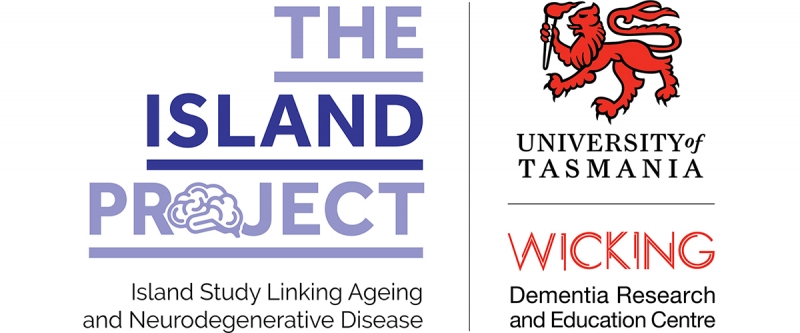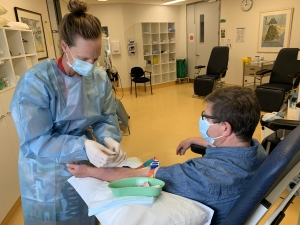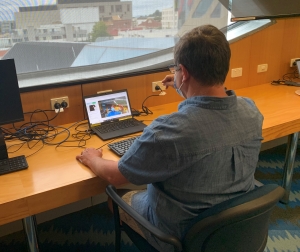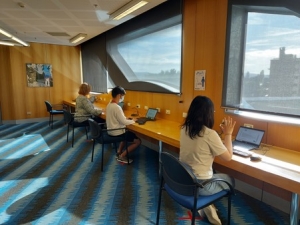| ISLAND Newsletter - February 2021 |
View in browser | Print |
 | | | 
Welcome to this edition of the ISLAND Project Newsletter, where we will provide you with some updates on our recent research activities. I’m Edward Hill, a Postdoctoral Research Fellow at the Wicking Dementia Research and Education Centre and an associate investigator on the ISLAND Project. We recently ran a pilot for the blood sample collection research activity, which you can read a bit more about below. Thank you to ISLAND members that took part in this pilot, which has helped us refine our processes for future collections. We will notify interested ISLAND members in the coming weeks to book into collection sessions to be held around the state. As ISLAND participants you will have the chance to take part in some exciting and innovative research activities during 2021. All of these are aimed at finding new ways to accurately detect risk of dementia and to measure response to interventions that aim to reduce that risk. We are really grateful to everyone taking part as, without you, we could not do this research. With you on board, Tasmania can develop new tests that will help people around the world.
| | New tests for measuring dementia risk | 
Blood collection
Over the last few decades, positron emission tomography (PET) and magnetic resonance imaging (MRI) brain scans have allowed us to detect the proteins that build up in the brain and contribute to dementia. However, these imaging tests are expensive and time consuming. New exciting research shows that these brain proteins can be found in the blood. Using blood-based biological markers, or biomarkers, is far cheaper and less invasive than brain scans.
Over the first half of 2021, we plan to collect the first round of blood samples from ISLAND participants across Tasmania. We will then collect blood again every two years for the duration of the 10-year ISLAND study, to investigate changes in the levels of these proteins in order to see if changing behavioural and lifestyle factors alters an individual’s risk of dementia. If you haven’t yet had your blood sample collected please keep an eye out in your email inbox or your ISLAND Home Portal for further information.
| | | 
CANTAB – thinking and memory
The term cognition refers to the thinking and memory aspects of our consciousness and is a core focus of dementia research. In the ISLAND Project we are tracking long-term changes in cognitive functions such as thinking speed, memory and spatial awareness. Technological advancements in recent years have enabled cognitive tests to be conducted remotely, using the internet. Over the next few years, we will invite ISLAND participants to complete some cognitive tests using the CANTAB (Cambridge Neuropsychological Test Automated Battery) program. These tests will be accessed from your ISLAND Home Portal, and you will be able to do the tests from the comfort of your own home.
| | | 
TasTest – motor function
Did you know that hand movement patterns subtly change in the earliest stages of dementia? Researchers at the University of Tasmania have recently embarked on the development of TasTest - a new screening test for dementia that analyses hand movements. This project is a world-first, using participants’ home computer to assess hand movements and cognition (thinking, speech and memory). One of our leading ISLAND researchers, Dr Jane Alty, has recently received funding from the National Health and Medical Research Council to undertake extensive testing, validation and piloting of TasTest in Tasmania and NSW. So far, TasTest has been piloted in Tasmanian Healthy Brain Project and a small number of ISLAND participants. Thank you to all participants who have engaged in pilot testing to date, we really appreciate your valuable input. We are now using the data from these pilots to refine the test and will invite the rest of ISLAND participants to do this test in the near future.
|  | | State of the evidence - Coconut Oil | 
There’s been significant coverage of coconut oil as a potential treatment for diseases such as Alzheimer’s. As a consequence, some people are now consuming coconut oil in a bid to reduce their dementia risk. Some researchers have suggested that, because the composition of coconut oil is different than other saturated fats, this might provide the brain with fuel for brain cells and potentially reduce the impact of neurodegeneration. Other researchers have suggested that coconut oil might help with the ratio of good to bad cholesterol and that this might be an avenue by which it works to reduce dementia risk. Unfortunately, these are all theories based on limited animal studies. We have yet to see any evidence from controlled trials that suggests that coconut oil is a preventative measure for dementia or a treatment for diseases such as Alzheimer’s. But research is under way. An important note here is that coconut oil is 90% saturated fat. Introducing this into your diet can have major ramifications for your health, including weight gain, increases in your blood pressure and changes in your cholesterol. Any dietary modifications must be considered in the context of your individual health status and should always be discussed with a medical practitioner.
| | ISLAND Project Partners | |
|  | |
The University of Tasmania received funding from the Australian Government. Views and conclusions expressed in this publication are those of its authors, and may not be the same as those held by the Department of Health.
|
|
Stay Connected:
|


|
islandproject.utas.edu.au
|
| |
|
|